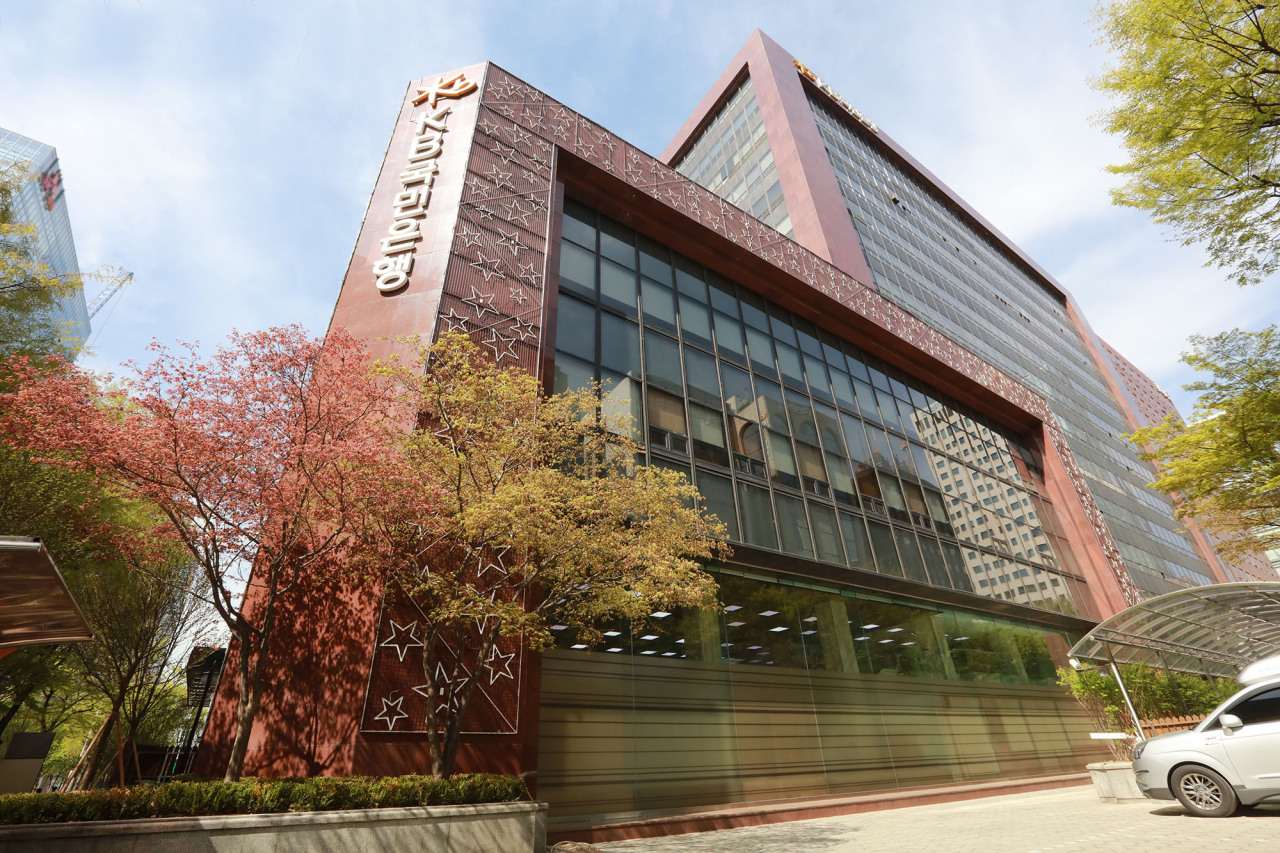 |
KB Kookmin Bank headquarters in Yeouido, western Seoul. (KB Kookmin Bank) |
South Korea’s KB Kookmin Bank said Monday it has snapped up a combined 543 billion won ($450 million) commitment to a private fund to finance a 100-megawatt wind turbine project on the southern resort island of Jeju.
The private fund, which marks the largest here in terms of those tied to renewable energy, will target 18 offshore wind turbines on Jeju Island, generating a combined 100 megawatts. The value of the total project amounts to 630.3 billion won and the construction of the offshore wind farm is slated to be completed in October 2024.
The flagship lender under the nation’s No.1 banking group by total assets said it has received financing from 15 different financial institutions. State-run Korea Electric Power Corp., Korea Midland Power, KEPCO Engineering & Construction, Hyundai Engineering & Construction, and local information and communication technology firm Baram participated as strategic investors.
KB Kookmin said it was able to complete its financing on time, despite the local financial institutions’ unfamiliarity with offshore wind turbine projects and growing concerns of dampened investor sentiment amid the Bank of Korea’s recent multiple rate hikes.
“We plan to align our goal with the global combat against climate change and the Korean government‘s policies towards a carbon-neutral society,” KB Kookmin said in a statement.
KB Kookmin Bank alongside its holding entity KB Financial Group has been a trailblazer here in adopting environmental, social, and governance values in financing.
Last year, KB Financial was officially endorsed by the Science-Based Targets Initiative, becoming the first financial institution in Asia to receive the green stamp from the global body. SBTi is an organization that assesses corporate green goals based on science. In recent years, its endorsement has grown to be a key certification to get for businesses seeking to validate their emissions targets.
The banking group is currently pursuing its own net-zero goals with a strategy called “KB Net Zero S.T.A.R.,” focusing on reducing its portfolio’s carbon emissions by 33.3 percent by 2030, 61 percent by 2040, and ultimately achieving neutrality by 2050. It plans to give loan benefits in terms of advantageous lines of credit and interest rates for corporates that can prove their carbon offsetting plans.
KB Kookmin’s net profit last year gained 12.7 percent on-year to nearly 2.6 trillion won, according to a recent regulatory filing. KB Financial’s net profit hit an all-time high in the same period, jumping 27.6 percent to 4.4 trillion won.
KB Financial’s total assets came to 663.9 trillion won by end-2021, the largest among the five major banking groups here.
By Jung Min-kyung (
mkjung@heraldcorp.com)







![[Herald Interview] How Gopizza got big in India](http://res.heraldm.com/phpwas/restmb_idxmake.php?idx=644&simg=/content/image/2024/11/20/20241120050057_0.jpg)
